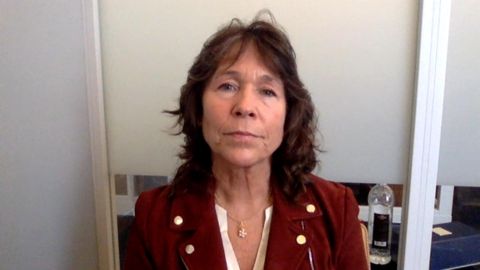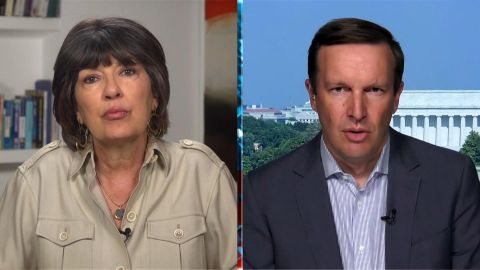Read Transcript EXPAND
SEN. CHRIS MURPHY (D-CT): We have known who the Taliban is for 20 years. We listened to the promises they made about being different this time around. But those of us who have been following Afghanistan looked at all of those with a mountain of salt. Listen, we have no choice right now but to be in a dialogue with the Taliban, whether we like it or not. First and foremost, we still have people we need to try to get out of the country. And, second, we plan to do the work necessary to hold them to their commitment. And their commitment was that if they came back into power, they would make sure that al Qaeda never had a footprint within Afghanistan. And so we have to be in a dialogue to hold them to that particular promise. That is maybe — that is absolutely vital to American interests. But, yes, not shocking that this is a government that looks a lot like the one that ran Afghanistan 20 years ago. That’s part of the reason we were there for the last 20 years, trying to work to stand up an Afghan military and an Afghan government that would actually work to keep the hands of government in the hands of more moderate elements of Afghan society. Obviously, the Afghan government and Afghan military didn’t want to do the hard work necessary to make that happen.
CHRISTIANE AMANPOUR: Obviously, there’s conflicting views on that. Many people do believe that they did and were just sold out by the American administration starting with President Trump. So I do actually — in terms of the Doha negotiations, which cut out the government, as you know. I want to ask you, then, because we have had the head of the General Accounting Office on Afghanistan on our program several times, particularly in the aftermath of the collapse. And he has said and many others have looked back and found how, actually, there was so much ostrich-like head in the sand from American officials, whether they’re military on the ground, whether they’re in Congress, whether they’re in the White House, some in the media, some policy-makers, just wanting to make this something that it wasn’t. And he talked about not a 20-year war there, but 21-year wars, in other words, not exactly optimum. Do you think that the U.S. bears some responsibility as well, whether it’s Congress, the military, or all the rosy predictions that were put out for so long?
MURPHY: Well, listen, it’s clear that there was intelligence coming out of Afghanistan over the course of the last 10 years telling American policy- makers and American presidents that, when the United States left, the Afghan government and military, we’re not going to be able to hold the country against the Taliban. And so I think the most important question now is, why did we engage in a fantasy for an extra 10 years?
About This Episode EXPAND
Chris Murphy; Kori Schake; Ali Soufan; Nick Mohammed
LEARN MORE



